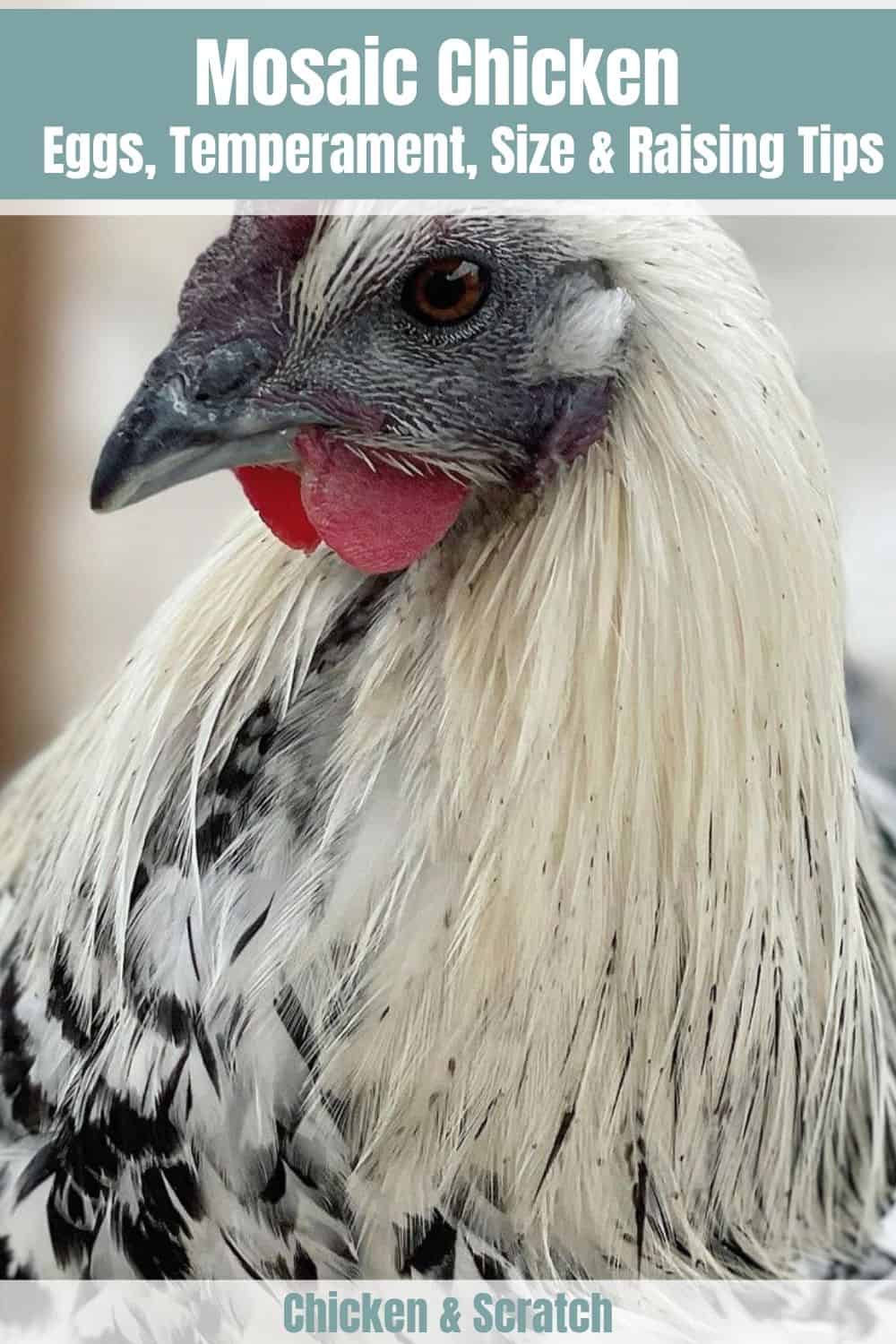The creation of a mosaic involves putting different pieces together to create an image. In a way, the Mosaic Chicken is just that. These birds are not an actual breed. They are composed of other different chicken breeds. For this reason, a lot of things regarding these birds are unpredictable. Depending on your view, this would either be the Mosaic’s most or least appealing quality.
Here, we’ll try to hand you the pieces of information you need to build your image of the Mosaic Chicken.
This article will cover
- Background and History of Mosaic Chicken
- Breed Standard and Appearance
- Mosaic Chicken Personality and Temperament
- Mosaic Chicken Egg Laying
- Health Issues and Care
- 3 Tips for Raising Mosaic Chickens
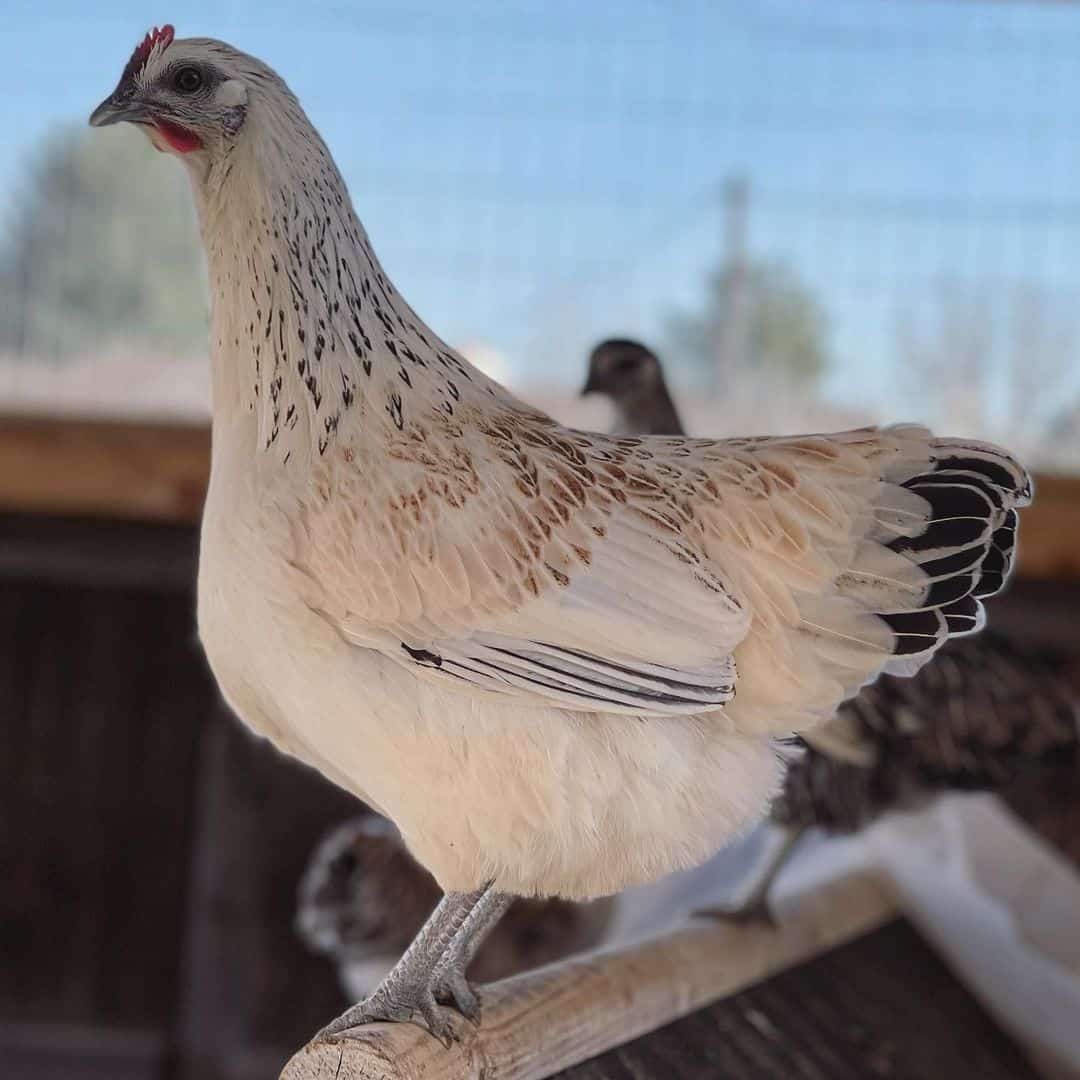
Background and History of Mosaic Chickens
You do not have to worry if you have just heard about the Mosaic Chickens. You are not out of the cycle or late with the most recent news. It’s just that the Mosaics and their history are all pretty much new.
The Mosaics are not only a work of art but of science as well.
The Mosaic Chickens originally came from Gold Feather Farms after years of trial-and-error with selective breeding. The farm selected and bred fibro melanistic chickens to arrive at what we now know as the Mosaic Chickens.
Fibromelanosis is a form of mutation. It is expressed in chickens as hyperpigmentation that makes most – if not all – parts of the fowl black.
Usually, this includes the skin, bones, meat, and even organs of the bird. A good example would be the Silkie. In a way, it was a little bit of a mix-and-match with the genes of different chickens. The Mosaic Chicken’s name seems to be perfect; don’t you agree?
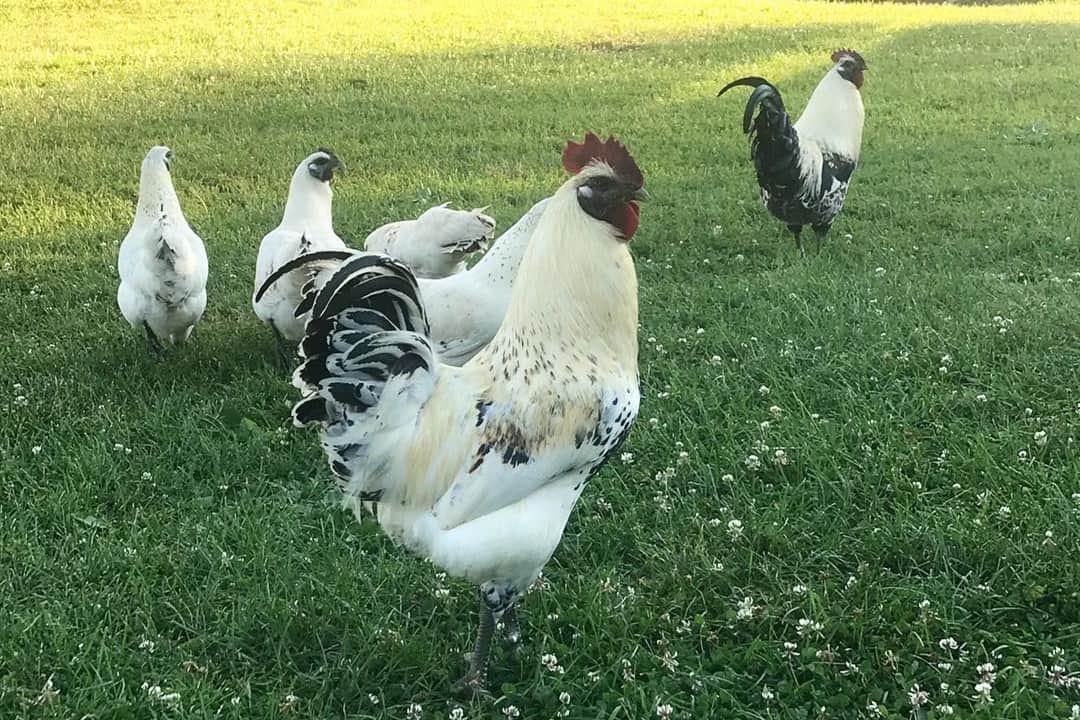
The Mosaics are new to the poultry world, and so, not a lot – even poultry enthusiasts – have familiarized themselves with the birds. However, over the years, with their uniqueness and beauty, the Mosaic Chickens have slowly been making themselves known and have been gaining a following.
For some time, they have been exclusive to Gold Feather Farms. However, as they started to get popular other farms and poultries started marketing the Mosaics too.
With their beauty, charm, and utility, we could say that it will only get better from here. We have little doubt that the Mosaics will continue to get recognized.
Breed Standard and Appearance
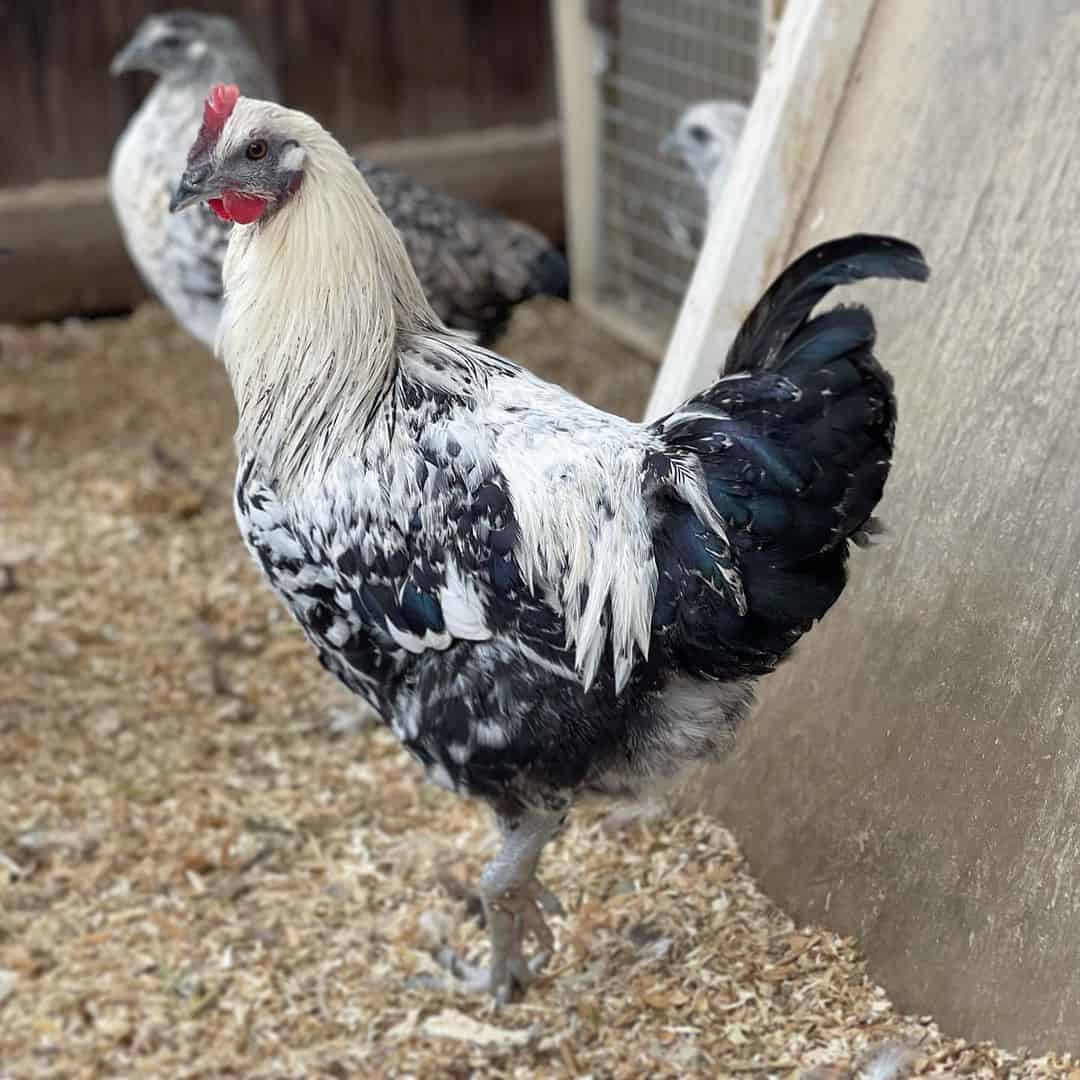
Currently, it seems the Mosaic chicken has not yet been recognized or accepted by any organization or association. Therefore, an official breed standard has not yet been released.
The most unique or distinguishing feature of the Mosaics is their turquoise earlobes. However, its shade varies from one bird to another, with some more vibrant and bright than others.
Furthermore, it would be reasonable to expect that the skin of these birds would be black since fibro melanistic chickens were used in their development. Interestingly, their skin is blue.
When it comes to the rest of this fowl’s appearance, it seems you won’t be able to get two birds looking the same as they come in different colors and patterns. Their appearance is highly variable, as they can come in different colors, patterns, and even different shapes and sizes. It’s always a surprise with these birds, and we just hope you like surprises.
According to Gold Feather Farms, their feathers’ base color can range from white to brown, which is then covered by different colored mosaic patterns.
Additionally, their head is a combination of colors like red and black to more infrequent colors such as blue and turquoise. Sometimes you could get one strictly black and white which accentuates their turquoise earlobes. However, it is also possible to get a Mosaic with brown and white patterns with a turquoise beak and earlobes.
Mosaic Chicken Personality and Temperament
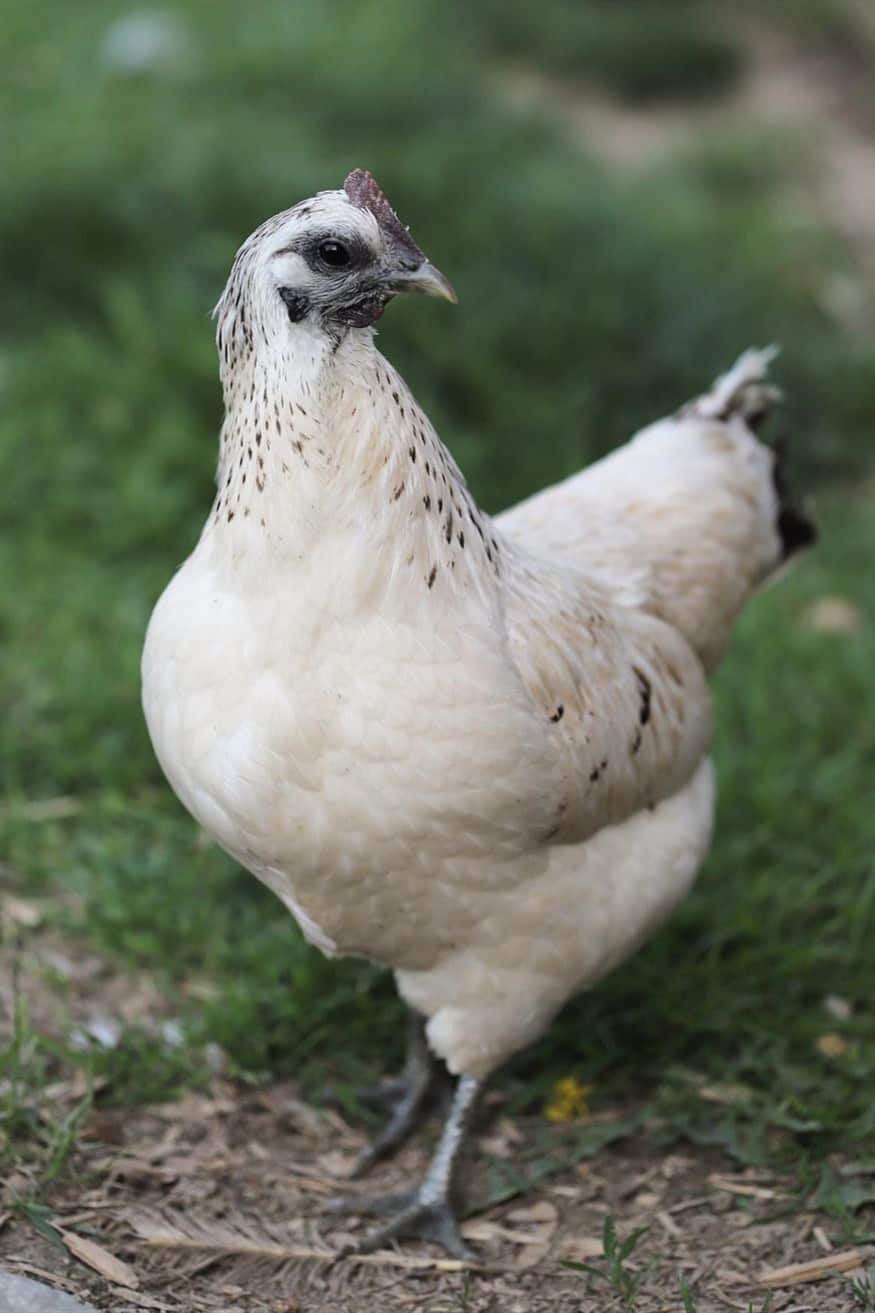
Sometimes, a chicken’s personality makes or breaks the deal. Let’s see if the Mosaic’s personality matches yours.
They have been noted to be more friendly than aggressive. Generally, friendly fowls have been easier to take care of and handle. They pose fewer problems than those that are more dominant or, of course, aggressive.
However, the friendly ones are usually bullied by the more dominant breeds. While you should not worry about them bullying other breeds, you might want to watch out for them, making sure they don’t get bullied if you have dominant breeds in your flock.
Furthermore, they have also been described as intelligent creatures. This would mean that the Mosaic Chickens can get themselves out of sticky situations. However, they would still need some assistance at times, of course.
They are not the quietest chickens out there, but their noise level is tolerable. It seems they can be a little chatty, but not obnoxiously so – unless you want complete silence. Additionally, they also tolerate confinement well.
However, keep in mind that a chicken’s disposition varies from one bird to another. There is almost the same amount of possibility that your Mosaic Chicken could perfectly display these traits as much as the possibility that they may stray from it.
Mosaic Chicken Egg Laying
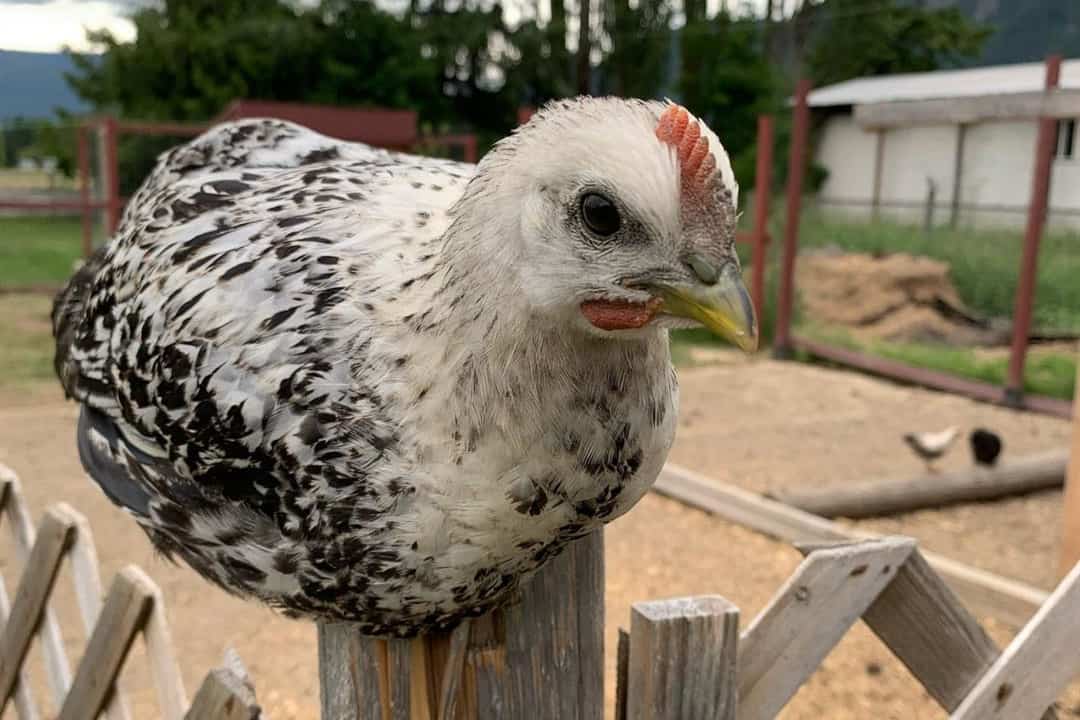
Mosaic Chickens’ eggs are medium-sized and cream in color. There is no exact range for the number of eggs they could supply, but they are considered good layers. Mosaic Chickens could most probably provide your needs all year round. While the other girls are already settling down for the year, the Mosaics would still give you a steady supply in winter.
They are also not broody. You won’t have that much of a problem when it’s time to collect their eggs.
Furthermore, it’s always fun to watch the eggs of these fowls hatch. While the egg size and color rarely really change, you never really know what your chick would look like, and it’s just like opening a present on your birthday!
Health Issues and Care
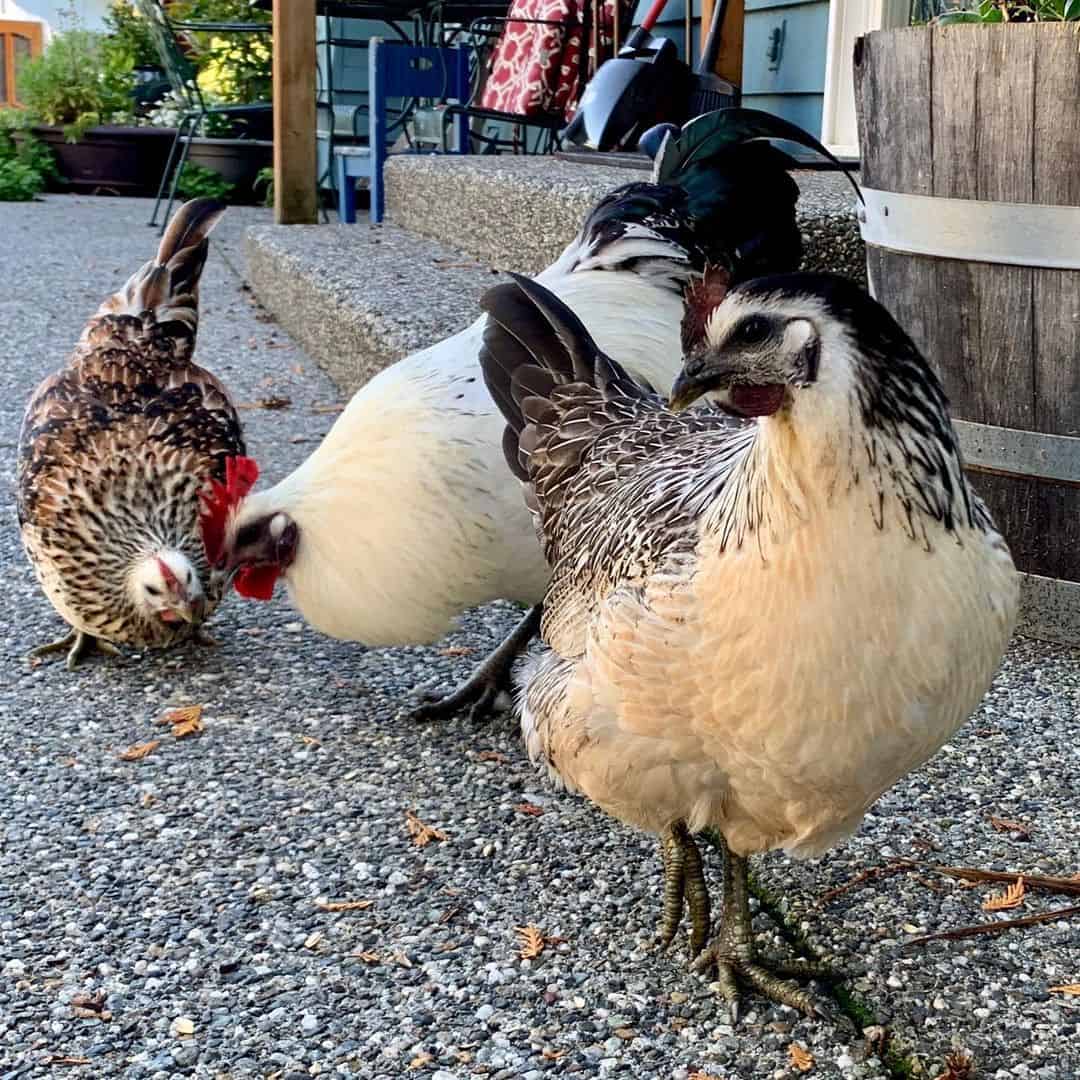
The health issues of these breeds vary depending on the exact bird you own. The information below is just a general overview that could perfectly or only somewhat apply to the Mosaic Chicken you have.
Generally, they are known to be heat-hardy. The Mosaic Chickens are pretty good with heat, so you would not have to worry much about them when summer arrives. Still, make sure you provide them some shade and plenty of water in the hot seasons.
On the flip side, they could or could not be cold hardy depending on the comb. Either way, make sure you provide the basic needs during the cold seasons. When winter arrives, make sure you give them some heat source, and if needed, give them some extra beddings.
They seem to be an overall, generally healthy breed that does not need any special care or treatment. It seems the only thing you need to worry about is the common health concerns.
Again, since each chicken of this breed is somehow different from the other, make sure you observe and note the traits and quirks of the bird you own to properly tend to its needs.
3 Tips for Raising Mosaic Chickens
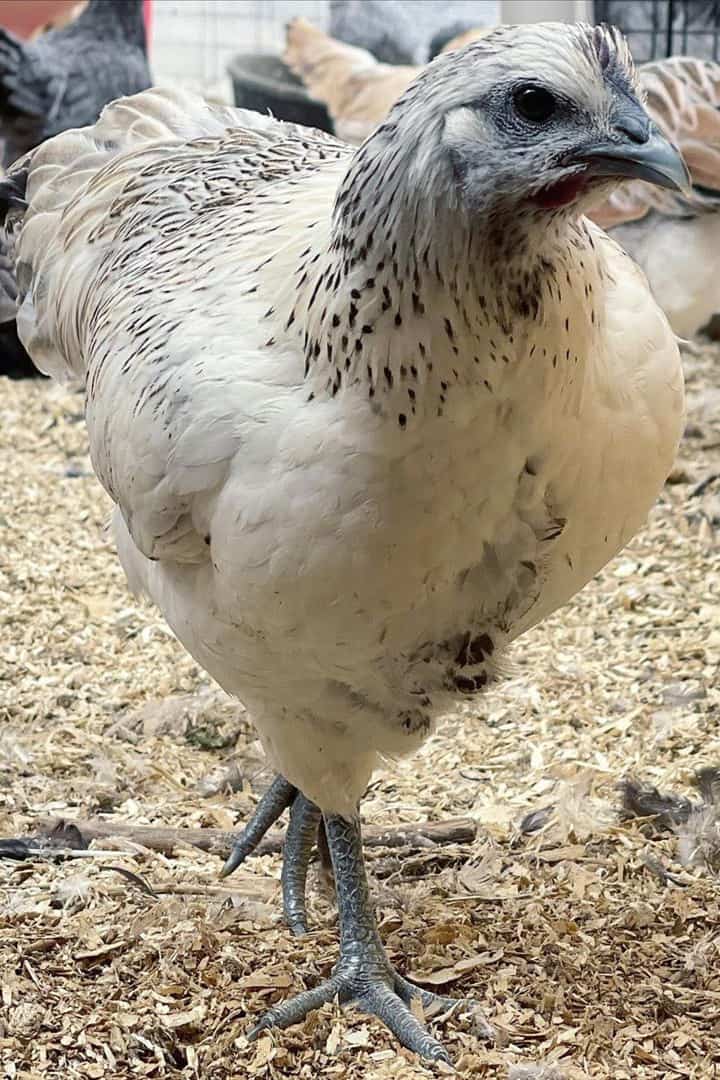
Raising these chickens might prove to be a little difficult than other fowls simply because it is almost always a surprise with these birds. However, if you are up for some challenge, then here are some tips to help you in your journey to raising Mosaic Chickens:
- Try and Try Again: If certain things are not working, then try an alternative. Remember that these birds are full of surprises, so if something is or is not working with one Mosaic, it might have a different result with another Mosaic. Do not just give up!
- You Know Your Mosaic Best: Since no two Mosaic birds are exactly alike, no one could give you a better insight on your chicken but you. Observe your chicken and take note of anything you think is worthy of keeping in mind. One Mosaic chicken might need more or less attention than another.
- Hints from Another Bird: Keep in mind that the Mosaic chicken is made up of different breeds and would most probably inherit some traits from them. If your Mosaic Chicken looks like another chicken breed, you might be able to get some tips on raising your Mosaic Chicken by noting the needs of that breed. What would work for that breed might work for your Mosaic as well.
Bonus: In case you are new in the poultry world, and the Mosaics just piqued your interest in starting your little poultry, then you might be able to get some general tips on raising chickens here.
Summary
The Mosaic Chicken is not an actual breed. Despite that, the Mosaics have been slowly gaining a following over the years.
This fowl came about after years of trial-and-error with breeding and manipulating the genes of the fibro chickens. The founder of these birds is the Gold Feather Farms, and the Mosaics were exclusive to this farm for some time. However, throughout the years, other farms have started to market them as well.
They are beautiful birds that offer you a surprise at every turn. Depending on the person, this could either be a good or a bad thing. However, if you are up for some challenge, these birds will surely repay you for your hard work.
They do not offer good meat, but they are good egg producers. They give you a medium-size cream egg all year round – even winter. Furthermore, they could also be great pets as they are friendly and intelligent birds.
They might require some extra work, but we believe that adding them to your flock would prove to be a rewarding experience.
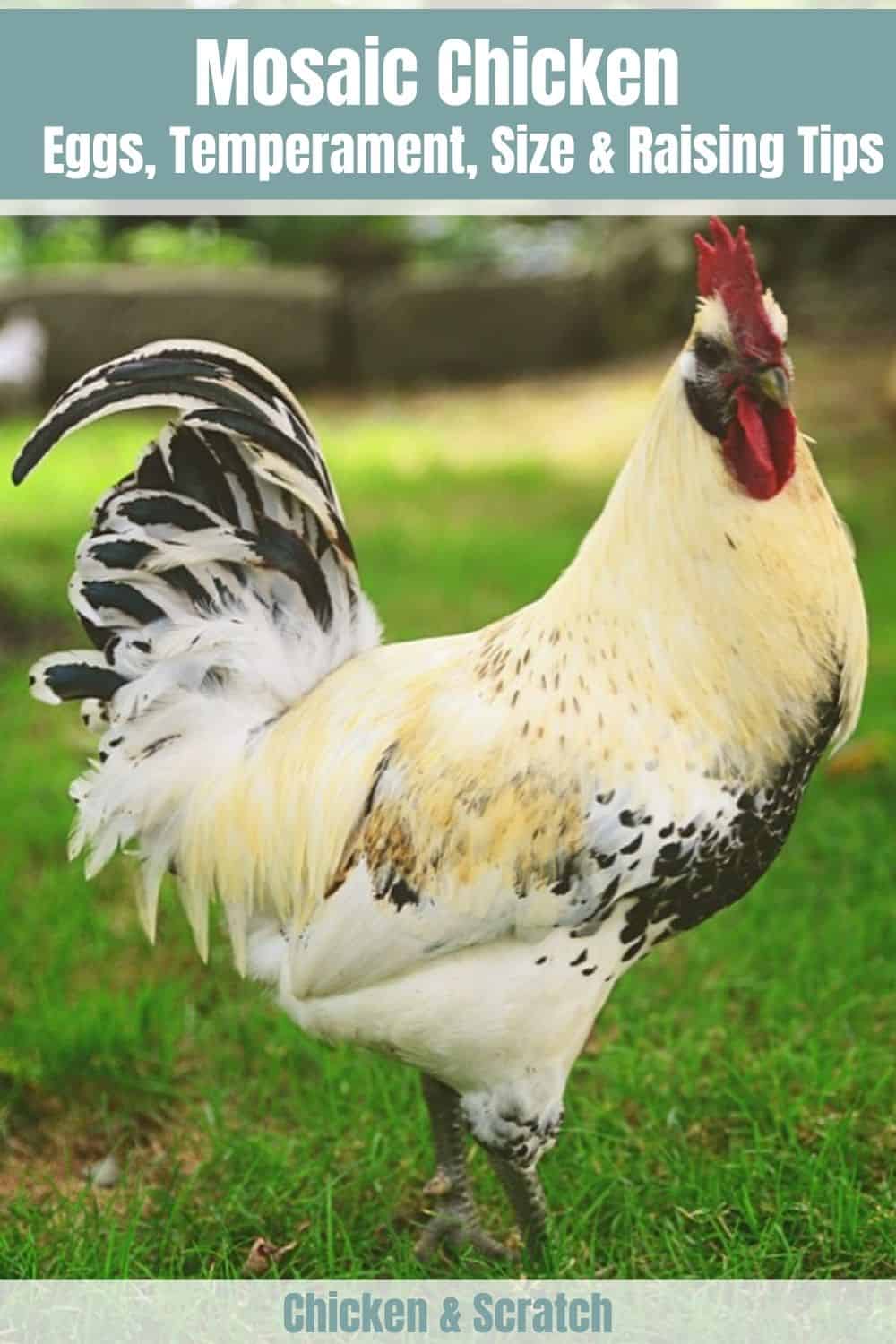

Joseph Hudson has been raising chickens for over 15 years. In 2018, he completed the Agriculture & Natural Resources program at Mt. San Antonio College. He currently raises over 1400 chickens on his 7.5-hectare farm. He keeps sharing his experience on raising healthy and happy chickens on Chicken Scratch The Foundry.
